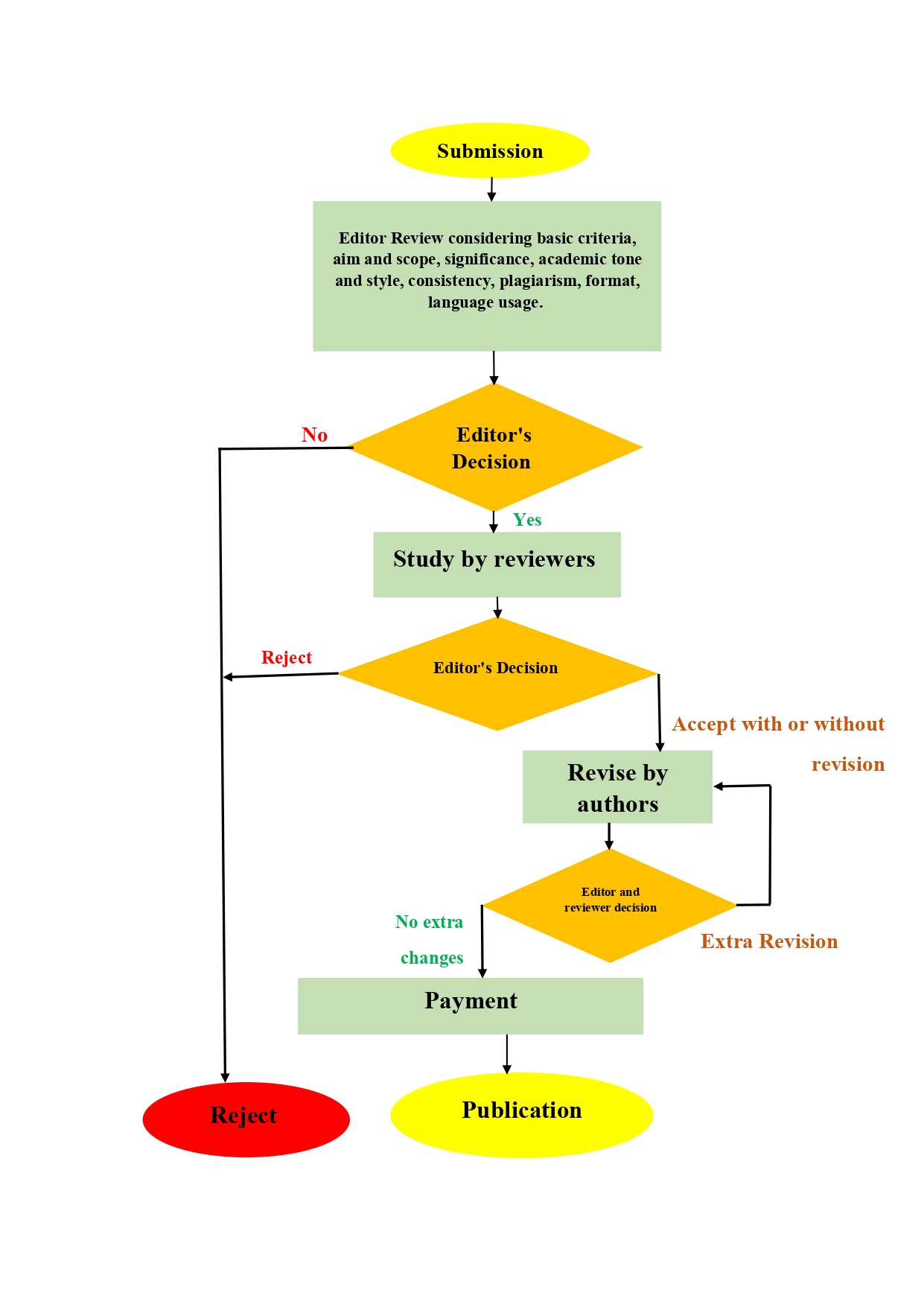International Journal of Pharmaceutical Research and Allied Sciences follows a double-blind peer review process; identities of neither authors nor peer reviewers are disclosed. Authors should ensure that papers conform to the scientific and style instructions of the journal. If authors don't follow the simple guidelines, the submission will be returned for an additional revision.
International Journal of Pharmaceutical Research and Allied Sciences only considers manuscripts that have not been submitted to other Journals simultaneously; they have not been published already, nor are they under consideration for publication or in press elsewhere. International Journal of Pharmaceutical Research and Allied Sciences has a completely digital submission, review, and production process. The editor for suitability will initially assess all contributions to the journal. Papers deemed suitable are then typically sent to a minimum of three independent expert reviewers based on many factors, including expertise, reputation, specific recommendations, conflict of interest, and previous performance to assess the paper's scientific quality. Potential peer reviewers should inform the Editor of any possible conflicts of interest before accepting an invitation to review a manuscript. Communications between Editors and peer reviewers contain confidential information that should not be shared with third parties.
The Peer Review Process
1. The Editor-in-Chief’s review
Immediately after submission, the Editor-in-Chief pre-checks the manuscript to comply with the journal's purpose, scope and adhere to ethical research and writing standards.
2. The Editorial Board Review
The editor-in-chief determines the two internal reviewers from the members of the Editorial Board according to their field of expertise. Internal reviewers evaluate the manuscript in terms of its subject, method, and results and decide whether it should be included in the external review process for detailed evaluation. Reviewer identity is not made visible to the author, author identity is not made visible to the reviewer, reviewer, and author identity is visible to (decision-making) editor.
3. The Peer Review
Two external reviewers take charge at this stage.
The Section Editor chooses two external reviewers who specialize in the research topic of the manuscript. In cases where a reviewer with expertise in the manuscript's subject cannot be identified, scholars holding a doctorate in the relevant field are selected. The reviewers thoroughly assess the article, considering its subject matter, methodology, and findings, providing their recommendations on whether the paper should be published. If both reviewers offer positive feedback, the manuscript is approved for publication under the decision of the Editor-in-Chief. In the event of a negative opinion from one of the two reviewers, the manuscript undergoes review by a third expert. Publication is possible with the favorable decisions of at least two reviewers. The identities of reviewers remain undisclosed to the author, and the author's identity is likewise concealed from the reviewers. The editor responsible for decision-making has access to the identities of both reviewers and authors.
Please see the following chart for more details of the evaluation of the manuscript:

Editorial Decision and Revision
All the articles, reviews and communications published in our journal go through the double blind peer-review process and receive at least two reviews. The decision will be one of the following:
All reviewer comments should be responded to in a point-by-point fashion. Where the authors disagree with a reviewer, they must provide a clear response.
Duration of the review process
The duration of the review process relies on the responsiveness of the referees, typically spanning around 2-3 months. In instances where referee reports conflict or face unnecessary delays, an additional expert opinion will be sought. In uncommon scenarios where securing a second referee is exceptionally challenging or when one referee's report thoroughly convinces the Editor, decisions on acceptance, rejection, or the need for revision are based solely on one referee's evaluation. The Editor conveys the decision to the author, along with recommendations from referees, often including direct comments. Revised manuscripts may be re-evaluated by the initial referees, who may request further revisions. A conclusive decision on manuscript acceptance or rejection, along with referees' recommendations and potential verbatim comments, is communicated to the author. The Editor's decision holds ultimate authority, as referees offer guidance while the Editor bears responsibility for the final acceptance or rejection of the article.
Complaints Policy
We aim to respond to and resolve all complaints quickly and constructively. The procedures to investigate and resolve complaints followed by International Journal of Pharmaceutical Research and Allied Sciences aim to be fair and balanced for those making complaints and for those being complained about.
In the event of disagreement with editorial decisions, authors retain the right to appeal. Authors seeking to appeal should contact the Editor-in-Chief directly. The Editor-in-Chief will thoroughly review the manuscript, along with editorial and peer reviewers' feedback, and render a final decision on acceptance or rejection. If necessary, the manuscript may be reassigned to a new handling editor for further evaluation. The Editor-in-Chief's decision in these matters is conclusive.
Regarding complaints concerning policies, procedures, editorial content, or the conduct of editorial staff, the complaint process is straightforward. Complaints can be submitted via email, ideally directed to the relevant contact person for the issue at hand. If contacting the designated person is not feasible, complaints may be sent to [email protected]. All complaints will receive acknowledgment within six working days.
In matters pertaining to policies, procedures, editorial content, or editorial staff actions, the Editor-in-Chief's decision is considered final.
Efforts will be made to resolve complaints promptly. However, some delays may occur if responses from external parties are required. Complainants will receive updates on the progress of their complaints every two weeks until resolution is achieved.